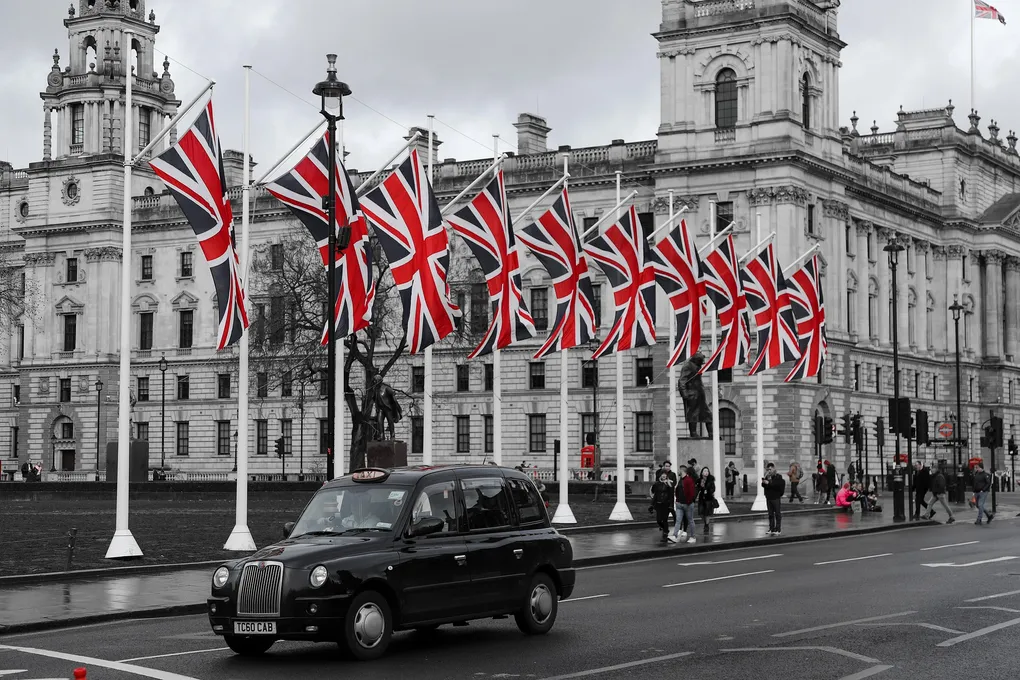
My Priorities for a Better UK: Democracy, Fairness, and the Public Good
Who I Am
I am a 26-year-old white man, born and based in the UK. I am a left-leaning voter with liberal ideals, and I want to leave the world better than I found it. This blog is where I share my thoughts on politics, society, and the changes I believe could create a fairer, greener, and more democratic country. Sometimes I will write about specific political events or policies in the news; other times I will focus on broader ideas that I think deserve more attention.
This post sets out what I believe are the most important issues we should be addressing right now if we want to make the UK a better place. These are the priorities I think need action, backed up by evidence, and presented in a way that I hope sparks discussion and change.
The Most Important Things We Need to Tackle Right Now
1. Strengthening Democracy
Proportional Representation (PR)
Switching to PR would mean Parliament reflects how people actually vote. It would force parties to work together, encourage fairer representation, and reduce the gap between votes cast and seats won. Support for PR is growing—recent polls show nearly half of Britons are in favour, and the British Social Attitudes Survey shows the trend rising year on year. Experts say PR improves accountability and stability.
Lowering the Voting Age to 16 & Civic Education
We should lower the voting age to 16 and make sure young people are educated about how to vote, where to find information on policies, and how to make informed choices. Evidence from Scotland shows 16–17-year-olds who voted in their first eligible election were more likely to keep voting for years after.
Reforming the House of Lords
The House of Lords should be replaced with a system that is 50% elected and 50% made up of appointed experts. This would balance public input with informed, evidence-based decision-making.

2. Fighting Misinformation and Fear-Mongering
Politics should be built on truth, evidence, and reasoned debate—not on fear and falsehoods. Yet too often, certain politicians and media outlets rely on scare tactics to push their agenda. They spread misleading statistics, cherry-pick data, and exaggerate threats to stir anger or division.
This kind of fear-mongering erodes trust in democracy and makes it harder for the public to make informed choices. Tackling it means:
- Strengthening fact-checking services and making their findings more visible
- Teaching media literacy in schools so people can spot unreliable sources and manipulative language
- Holding politicians and public figures accountable when they deliberately mislead
Research from organisations like Full Fact shows that widespread misinformation on issues such as immigration, crime, and the economy can shift public opinion dramatically—often in ways that do not match reality. A healthy democracy relies on well-informed citizens, so fighting misinformation must be a core priority.
3. Public Services That Serve Everyone
Universal Health Care
The NHS is one of the most important institutions in the UK. Free health care at the point of need is something we must protect and improve. Yet waiting times and doctor shortages have led to a rise in private clinics. I believe all essential healthcare, including dentistry, should be free. Private healthcare can exist for those who choose to pay for faster treatment, but it must never allow people to jump ahead on NHS waiting lists.
Research shows that universal healthcare systems not only improve public health but also boost productivity and reduce inequality. Relying too much on private providers risks draining staff and resources from the NHS (bmj.com).
Strong Benefit System
A strong benefits system is vital for people who are disabled, unable to work, or trying to get back into work. The IPPR has called for new “neighbourhood health centres” and a “right to try” scheme that allows people to attempt work without losing welfare support.
More Local Control
Local communities should have greater control over public transport, schools, policing, and local NHS services so decisions are made closer to the people they affect.
4. Green Energy and Public Ownership
I believe essential services that cannot function with genuine competition should be publicly owned—this includes energy, rail, and water.
Energy
We must move from fossil fuels to renewables. Public ownership of energy can pay for itself in ten years through lower borrowing costs and the removal of shareholder dividends. Publicly-run utilities also tend to invest more in renewables.
Trains
Years of privatisation have brought high fares, unreliable services, and fragmented rail operations. Research shows bringing rail back into public hands could save £1 billion a year and make services more reliable.
Water
Privatisation has led to high bills and environmental harm, including sewage dumping into rivers and seas. Public ownership would mean profits are reinvested in improving infrastructure and protecting the environment.
5. Safeguarding Rights and Privacy
Privacy & Secure Government IDs
Any government digital ID system must be transparent, secure, and run by the state—not outsourced. GDPR, while seen as a nightmare when first introduced, has turned out to be an excellent law for protecting personal data. It gives people control over how their information is used, but many are still unaware of their rights. More public education is needed so people know how to enforce those rights.
LGBTQ+ Rights & Women’s Rights
Equality must be more than a policy—it has to be an everyday reality.
For LGBTQ+ people, that means full legal protection against discrimination, stronger action against hate crimes, and education that reflects and respects diversity.
For women, it means closing the gender pay gap, protecting reproductive rights, funding domestic abuse services, and enforcing legal safeguards against harassment and violence. Equality laws need to be applied in practice, not just passed on paper.
Secularism
The state should be separate from religion so laws are based on evidence and fairness, not religious doctrine. History shows countless wars and conflicts rooted in religion—from the Crusades to the European Wars of Religion to modern-day violence. Secularism ensures that people of all faiths, or none, are treated equally and that public policy works for everyone.
In Summary
These are the priorities I believe we must focus on right now: stronger democracy, fighting misinformation, better public services, public ownership of essential utilities, and safeguarding rights and privacy.
If we can address these areas, we can create a country where every vote matters and decisions are made based on facts, not fear. We can build an NHS and public service system that works for everyone, not just those who can pay more. We can make sure our trains run on time, our energy is clean and affordable, and our water is safe and well-managed. We can protect the rights and freedoms of every citizen, regardless of gender, sexuality, or beliefs, and ensure government works for all—not just the few.
Tackling these challenges will not be easy, but doing nothing will only deepen the problems we already face. The UK has the potential to be a fairer, greener, and more democratic country—one that values truth, compassion, and equality. I believe that if we take action on these priorities, we can make that vision a reality and leave a better nation for future generations.
Want to read more?
1. Strengthening Democracy
- Proportional Representation (PR)
- Lowering the Voting Age to 16 & Civic Education
- Reforming the House of Lords
2. Fighting Misinformation and Fear-Mongering
3. Public Services That Serve Everyone
- Universal Health Care
- Strong Benefit System
4. Green Energy and Public Ownership
- Energy
- Trains
- Water
5. Safeguarding Rights and Privacy
- Privacy & GDPR
- LGBTQ+ Rights & Women’s Rights
- Secularism